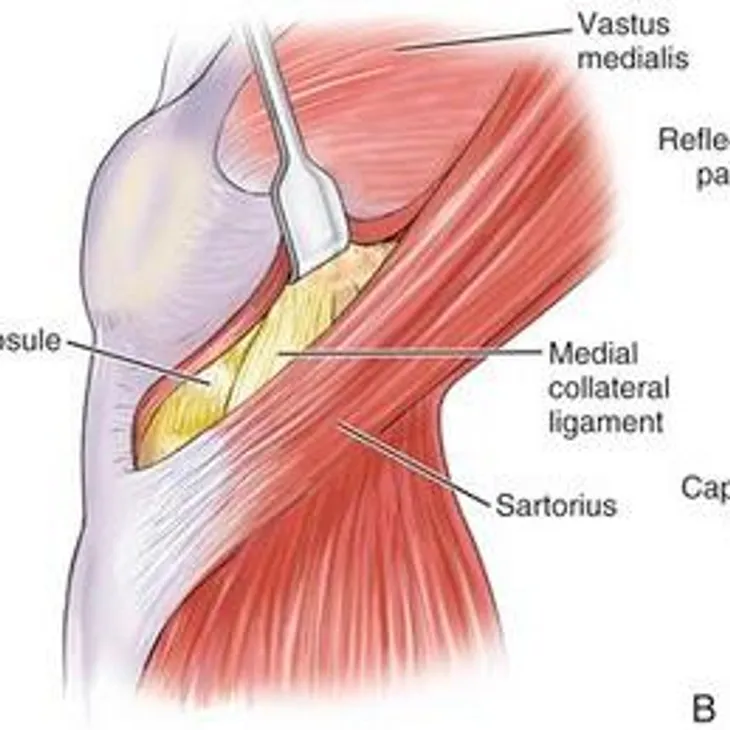
Jiffy Knee technique for Knee Replacement with Minimal Downtime in Chapin, SC
Faster Recovery and Less Pain Knee Replacement SurgeryWelcome to the forefront of orthopedic excellence with Dr. James Loging, MD, and the revolutionary Jiffy Knee knee replacement surgery. Our joint replacement surgery is not only a solution but a seamless experience, prioritizing your well-being from start to finish.
The key feature of this technique is its approach to muscle preservation. Unlike traditional knee replacement surgeries, which involve cutting through muscles, Jiffy Knee minimizes muscle trauma by utilizing special instruments and techniques to “lift” and slide the muscles aside. Only the skin and capsule are cut during the procedure, resulting in less pain and quicker recovery times. With surgery times typically taking around 30 minutes for implantation, patients can experience significant benefits in terms of reduced discomfort and faster return to normal activities.
Request an Appointment
Fill out the form below to notify our staff of your intended visit.
"*" indicates required fields

Experience the Jiffy Knee™ Advantage
Live Well & Stay Active Without
Pain or Limitations
1. Unparalleled Expertise: Dr. James Loging, MD, a leading authority in orthopedics, brings a wealth of experience to every Jiffy Knee procedure. Trust in the hands of a seasoned professional dedicated to transforming your joint health.
2. Cutting-Edge Technology: At the heart of the Jiffy Knee™ approach is state-of-the-art technology. Dr. Loging employs innovative techniques and advancements, ensuring precision and efficiency in every aspect of the procedure.
3. Swift Recovery, Less Pain: Bid farewell to prolonged downtime and discomfort. The Jiffy Knee™ Knee Replacement is engineered for a significantly faster recovery, minimizing disruption to your daily life. Experience less pain post-surgery, allowing you to regain mobility with ease.
4. Personalized Care: Dr. Loging understands that each patient is unique. Enjoy a tailored treatment plan designed to address your specific needs, ensuring optimal results and a personalized path to recovery.
5. Comprehensive Support: Our commitment to your well-being extends beyond the operating room. Benefit from comprehensive post-operative support, including rehabilitation programs and ongoing care, ensuring a smooth journey towards restored joint function.
Schedule Your Consultation: Discover the transformative possibilities with Jiffy Knee™ Knee Replacement. Schedule a consultation with Dr. James Loging, MD, and take the first step towards a future with faster recovery, less pain, and improved joint health. Your journey to pain-free mobility starts here.
Call (803) 941-8095 or contact us online!
Other Specialized Treatment Areas
Knee Replacement Surgery FAQs
When osteoarthritis or rheumatoid arthritis advances the same knee to such a degree that you find yourself in constant pain, it may be time for a knee replacement surgery. We may also recommend a replacement if patients experience any of the following symptoms or limitations:
- You’re unable to perform daily tasks without pain
- Swelling in your knees won’t go down
- You can’t enjoy simple activities like walking or standing
- You need to be active for your overall health
Jiffy Knee technique DOES NOT cut the Quadriceps or the VMO muscles. Rather we use special instruments and techniques to “lift” the muscle and slide it. Only the skin and capsule are cut. Surgery time typically takes 30 minutes to implant. LESS PAIN and QUICKER RECOVERY
Recovery time varies from person to person but generally takes several weeks to a few months. Most patients can resume light activities within 3-6 weeks, while complete recovery may take up to 3-6 months.
Yes, physical therapy is a crucial part of any joint replacement program and your recovery process. It helps improve strength, flexibility, and mobility in the bones and joint of the replaced knee.
While knee replacement surgery can provide significant pain relief and improve the replacement knee joint function, it’s essential for patients to follow postoperative instructions carefully to minimize complications such as blood clots or infections. Patients may be prescribed blood thinners to prevent blood clots and are advised to avoid activities that could damage the new knee joint, such as high-impact sports or heavy lifting.
Your knee is durable and capable of handling shifting weight and heavy impacts. Replacements, therefore, are equally engineered to do the job. With metal components made of titanium or cobalt-chromium alloys combined with medical-grade plastics, your knee and joint replacement should last you upwards of 20 years. For most Palmetto Boneone and Joint patients, this will be the only knee joint replacement surgery they need. To learn more about our knee and joint replacement surgery, call Palmetto Bone & Joint today.
Your surgeon will provide pre-surgery instructions, which may include exercises, dietary restrictions, and medication adjustments. It’s essential to follow these guidelines to optimize your treatment and your outcome.
Before undergoing knee replacement surgery, patients typically undergo a complete physical examination, including blood tests and imaging studies, to assess their overall health and the extent of knee damage. Orthopedic surgeons may also recommend consultations with other healthcare professionals, such as physical therapists and specialists in physical medicine, to optimize preoperative conditioning and postoperative rehabilitation.
On the day of surgery, patients are often administered pain relief medications and may receive regional anesthesia to block pain signals from the surgical site. Surgical techniques vary but generally involve making an incision over the knee joint to access the damaged areas. Soft tissues are carefully moved aside to expose the knee joint, and the damaged cartilage and bone are removed.
There is no strict age limit for knee replacement surgery. The decision is based on the patient’s overall health and the severity of their knee condition.
Kneeling can be uncomfortable for some patients. Discuss this with your surgeon, as it may depend on your specific case and the type of prosthesis used for your total knee replacements and joint replacements. Over time, as patients continue their rehabilitation and regain strength, they can expect to experience improved mobility and a reduction in knee pain, allowing them to return to activities they enjoy with greater ease.
However, it’s important to remember that artificial knee joints have a lifespan, and further surgery may be needed in the future to replace worn-out components or address complications. Through ongoing medical education, clinical trials, and advancements in surgical techniques, orthopedic surgeons continue to refine knee replacement procedures, enhancing outcomes and improving the quality of life for patients with knee pain and joint dysfunction.
In most cases, knee replacement surgery is covered by health insurance, but you should check with your insurance provider to understand your specific coverage and any associated costs.
Knee Surgery Recovery & Rehabilitation
Recovery time following knee replacement surgery can vary from person to person but generally takes several weeks to a few months. Physical therapy is a crucial component of the recovery process, helping patients regain strength, flexibility, and mobility in the replaced knee. While most patients can resume light activities within 3-6 weeks, a complete recovery from knee replacement surgery may take up to 3-6 months.
Modern knee replacements are engineered to be durable and long-lasting. With advancements in materials such as titanium or cobalt-chromium alloys combined with medical-grade plastics, most knee replacements can last over 20 years, providing patients with lasting relief from joint pain and improved mobility.
What is the Jiffy Knee Replacement
Knee replacement, also known as knee arthroplasty, is a surgical procedure aimed at relieving severe knee pain and disability caused by conditions such as knee arthritis or knee injury. During knee replacement surgery, damaged portions of the knee joint are replaced with artificial knee joints made of metal and plastic parts. This procedure can involve total knee replacement, where the entire knee joint is replaced, or partial knee replacement, which preserves healthy knee structures. Patients typically undergo a complete physical examination, including blood tests, before surgery to assess their overall health.
Orthopedic surgeons may recommend physical therapy before and after surgery to optimize recovery and improve mobility. Blood thinners may be prescribed to prevent blood clots, which can be a complication of surgery. While knee replacement can provide significant pain relief and improve knee function, patients should know the potential for complications such as blood clots or infections. With proper rehabilitation and adherence to postoperative instructions, patients can expect to return to normal activities and experience a full recovery. Ongoing medical education and advancements in surgical techniques continue to improve outcomes for patients undergoing knee replacement.

Expert Orthopedic Surgeons Easing Joint Pain in South Carolina
Are you tired of living with chronic joint pain? Look no further than Palmetto Bone & Joint in South Carolina, your trusted team of orthopedic surgeons specializing in comprehensive care for bone and joint health. Our renowned joint replacement program is just one facet of our top-notch, orthopedic care services.
At Palmetto Bone & Joint, we make a concerted effort to provide you with the best possible treatment and outcomes. Say goodbye to pain and hello to a life filled with mobility and comfort. Choose Palmetto Bone & Joint for the expert care your bones and joints deserve!
